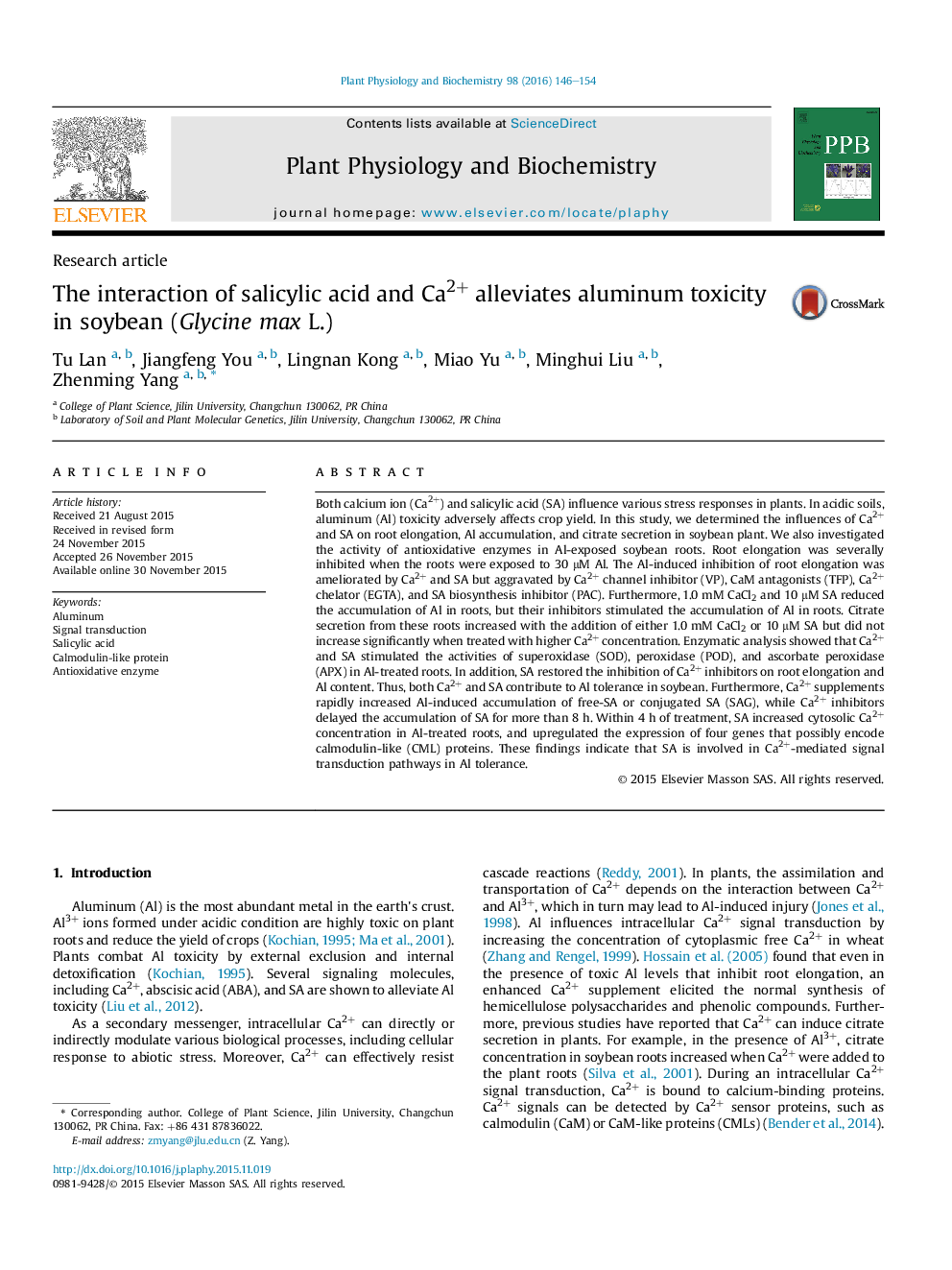| Article ID | Journal | Published Year | Pages | File Type |
|---|---|---|---|---|
| 8354269 | Plant Physiology and Biochemistry | 2016 | 9 Pages |
Abstract
Both calcium ion (Ca2+) and salicylic acid (SA) influence various stress responses in plants. In acidic soils, aluminum (Al) toxicity adversely affects crop yield. In this study, we determined the influences of Ca2+ and SA on root elongation, Al accumulation, and citrate secretion in soybean plant. We also investigated the activity of antioxidative enzymes in Al-exposed soybean roots. Root elongation was severally inhibited when the roots were exposed to 30 μM Al. The Al-induced inhibition of root elongation was ameliorated by Ca2+ and SA but aggravated by Ca2+ channel inhibitor (VP), CaM antagonists (TFP), Ca2+ chelator (EGTA), and SA biosynthesis inhibitor (PAC). Furthermore, 1.0 mM CaCl2 and 10 μM SA reduced the accumulation of Al in roots, but their inhibitors stimulated the accumulation of Al in roots. Citrate secretion from these roots increased with the addition of either 1.0 mM CaCl2 or 10 μM SA but did not increase significantly when treated with higher Ca2+ concentration. Enzymatic analysis showed that Ca2+ and SA stimulated the activities of superoxidase (SOD), peroxidase (POD), and ascorbate peroxidase (APX) in Al-treated roots. In addition, SA restored the inhibition of Ca2+ inhibitors on root elongation and Al content. Thus, both Ca2+ and SA contribute to Al tolerance in soybean. Furthermore, Ca2+ supplements rapidly increased Al-induced accumulation of free-SA or conjugated SA (SAG), while Ca2+ inhibitors delayed the accumulation of SA for more than 8 h. Within 4 h of treatment, SA increased cytosolic Ca2+ concentration in Al-treated roots, and upregulated the expression of four genes that possibly encode calmodulin-like (CML) proteins. These findings indicate that SA is involved in Ca2+-mediated signal transduction pathways in Al tolerance.
Related Topics
Life Sciences
Agricultural and Biological Sciences
Plant Science
Authors
Tu Lan, Jiangfeng You, Lingnan Kong, Miao Yu, Minghui Liu, Zhenming Yang,
